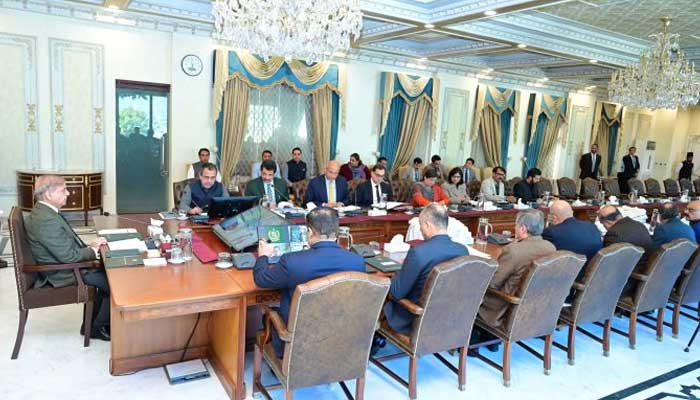
- The PM orders the transfer of electricity generation capacity to solar energy.
- Calls for the immediate closure of inefficient power plants.
- Orders action against officials who deliberately obstruct reforms.
ISLAMABAD: As the incumbent government strives to address multi-layered challenges in the power sector, Prime Minister Shehbaz Sharif on Friday directed the authorities concerned to further reduce electricity tariffs and expedite the process of implementing the action plan for future power generation projects.
The Prime Minister issued the directives while chairing a meeting to assess and discuss the country’s future power and electricity projects. The meeting was attended by Federal Ministers Ahad Khan Cheema, Awais Leghari, Dr Musadik Malik, State Minister Ali Pervaiz Malik and other officials.
During the meeting, he was briefed on the progress of ongoing hydropower projects across the country.
Highlighting the need to prioritize low-cost energy projects based on local resources, Prime Minister Shehbaz said such projects produce eco-friendly and affordable electricity.
He further directed that the current power generation capacity should also be shifted to solar energy.
Globally, electricity is generated from eco-friendly and low-cost solar energy, he noted, adding that Pakistan was fortunate in this regard as the country had of vast potential in terms of solar energy.
The Prime Minister was also briefed on progress in phasing out inefficient power plants that consume more fuel but produce less electricity.
He ordered the immediate closure of these obsolete power plants, adding that the closure of these plants would not only save valuable foreign exchange but would also reduce electricity costs for consumers.
The Prime Minister also demanded that immediate action be taken against all officials who are deliberately hindering reforms in the power sector. He also ordered that reforms in the electricity transmission system be accelerated.
The power transmission system must be improved in accordance with international standards, the Prime Minister further ordered.
He further ordered the expeditious implementation of a system based on modern technology for the selection and transmission of low-cost electricity.
The Prime Minister gave instructions to complete all power sector reform measures within the stipulated time.
The meeting came days after the federal cabinet approved “settlement agreements” with eight bagasse-powered independent power producers (IPPs) – a move the government said would benefit the 238 billion national exchequer of rupees.
These bagasse-based power plants included DW Unit I, Unit II, RYK Mills, Chiniot Power, Hamza Sugar, Al-Moez Industries, Thal Industries and Chinar Industries.
Two months earlier, the Prime Minister had announced the premature termination of power purchase agreements (PPAs) with the five oldest IPPs, with annual savings of 60 billion rupees, or around 411 billion rupees, on the remaining duration of their contracts.
The federal government came under immense pressure to reconsider its PPAs with power plants following outcry across the country as the addition of capacity payment fees inflated electricity bills beyond what was affordable for the masses burdened by inflation.
